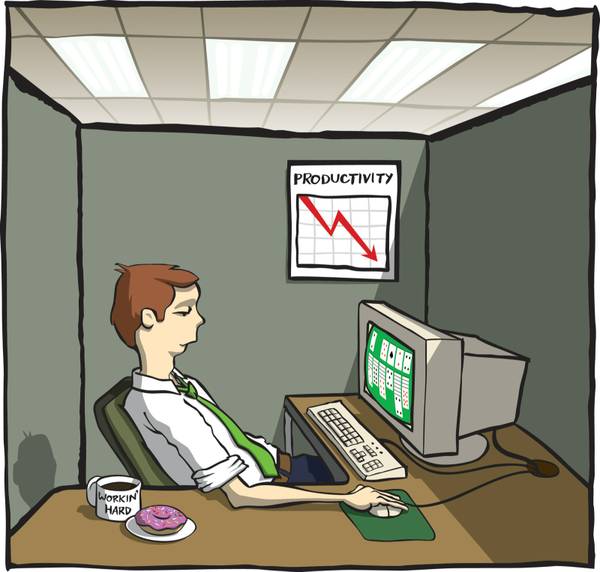Everyone knows the feeling of churning through task after task at work without getting anything meaningful done.
Time management consultant Peter Turla of timeman.com says many workers get caught in the trap of equating activity with accomplishment.
“One thing I suggest to people is using a back-from-the-future perspective to gain insights. You mentally project ahead. Ask what would have to happen to me at the end of this week for me to look back and say ‘I had a terrific week,’” says Turla, an author, speaker and former NASA rocket designer who has been featured extensively in print and broadcast media. “You have to ask yourself, ‘Is what I’m about to do going to contribute to where I want to be?’ If it’s not making any contribution, you’ve got to challenge yourself on why you’re spending time on it.”
Here are a few more time-management tips, compiled from numerous sources.
• Keep a diary: Entrepreneur magazine recommends writing down all thoughts, activities and conversations for a week, tracking the amount of time spent on each. This will identify both productive and unproductive behavior patterns — insight that can be used to curb bad habits and focus more on good ones.
• Link daily to-dos to annual goals: Management consultant Peter Bregman says workers should set five annual goals and spend 95 percent of their time each day on activities that advance those goals. He advises managers to make a to-do list every day in their first five minutes at work (other experts suggest doing this at night). Activities that don’t correspond to a worker’s key goals should get left off the to-do list.
• Schedule must-dos on the calendar: Give a block of time on your calendar to each item on the to-do list, Bregman suggested in his book, “18 minutes: Find Your Focus, Master Distraction and Get the Right Things Done.” Even a short amount of uninterrupted work can yield progress toward long-term goals, and making it a daily requirement ensures you won’t wander off course.
• Count on interruptions: Set aside time for “planned interruptions,” Entrepreneur magazine says. They’re going to happen anyway. But booking time for them ensures that they don’t take over your day.
• Build in a few extra minutes for phone calls: Entrepreneur suggests taking five minutes before phone calls to set a goal for the conversation, and five minutes after each call to reflect on whether you reached that goal.
• Schedule other blocks of reflection time: Some experts advise taking as much as a few hours each day to reflect. Turla suggests taking a few minutes at the end of each day. Shoot for a minimum of an hour each week to think about the events of the week, the authors of “Management Tips From Harvard Business Review” recommend. Don’t dwell on failures. Think about both successes and shortcomings, and how you could have improved your performance in each case.
• Step away from the desk: To reduce interruptions, head to a conference room or coffee shop when you need to really think. Studies have shown that even minor distractions can cause significant loss in productivity.
• Wait to check your email: Email can be a collection of aggravations and distractions, says Julie Morgenstern, author of “Making Work Work” and “Never Check Your Email in the Morning.” So don’t check it the first hour you’re at work, she says. Instead, use that block of time for strategic thinking or other activities that require concentration. “Most people are compulsive email checkers, and it lowers their productivity,” Turla says. “We check it because it’s an escape from what we’re doing. It also gives us that quick reward of feeling good. But meanwhile, your big project is getting delayed because you’re answering that email.”
• Think of email as a way to build relationships: Stop seeing email as something that takes you away from important work, advises Sarah Green, a Harvard Business Review editor who has blogged about her own attempts to rein in her email inbox. “Once I made this mindset shift,” Green wrote, “it was easier to make time for email.”
• Filter emails: Services such as SaneBox use an algorithm to decide which emails are most important and send only those to your inbox. The rest go into a folder that you can check later.

